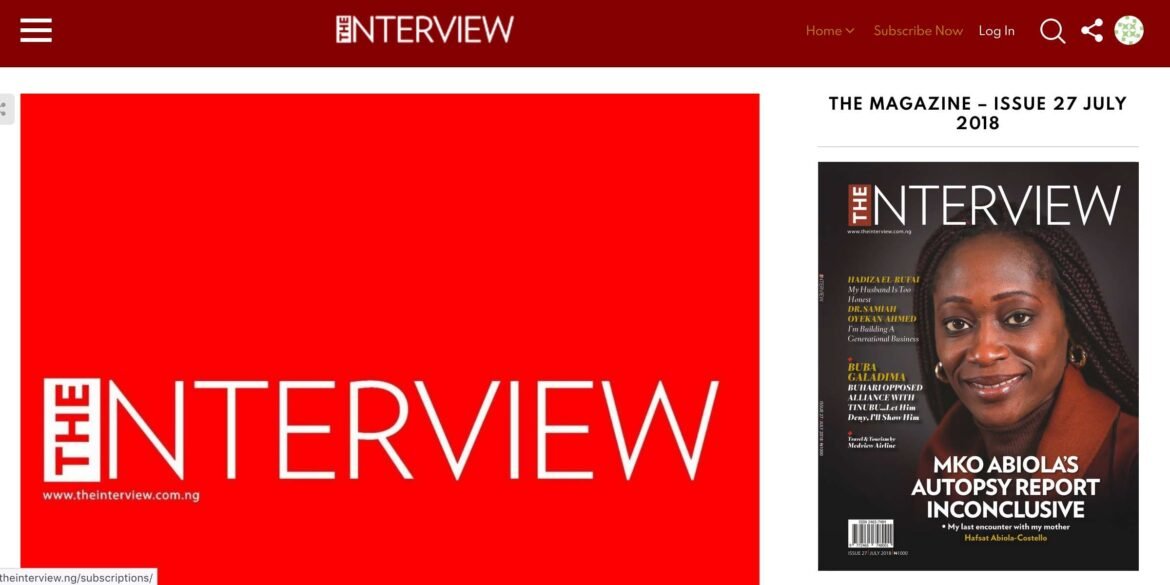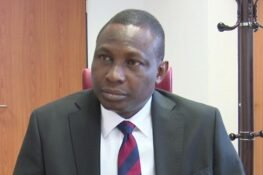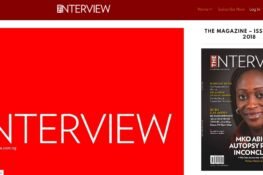How do you start a business? It sounds dumb if your business is already succeeding. And if you’re not planning to start one yet, the idea might seem farfetched. But if you’re on the verge of launching out, then starting a business can be as daunting as the chicken-and-egg parable. Nothing in the book prepares you for it.
In spite of all that I had read and heard, I certainly wasn’t prepared to start any business until Boxing Day three years ago when my friend, Lekan, visited me at home in Lagos.
Among other presents he brought to me on that day was the digital version of a grandfather wall clock. I was thrilled by the gift but my excitement was soon mixed with confusion by Lekan’s parting words on his way out. “What are you planning to do next year?,” he asked with a concern and sincerity that nearly stopped my heartbeat.
I was the Group Managing Director of LEADERSHIP, where for the last three years I had been working with Chairman Sam Nda-Isaiah and rest of the team to straighten out the newspaper. I was on a three-year contract, which was due to expire in January. That was only weeks away, but I felt secure. And now my serenity had been shattered.
Managing LEADERSHIP was a hell of a job but I had no less of a hell of a good time doing it with the team. The paper was changing and the future was looking bright. I was not thinking of quitting in January.
Lekan noticed my mood change and, not wanting to press the matter, said he just wanted me to think about it.
I have always admired his own start-up story. He was an executive director at Sahara Energy, a very big man. He woke up one morning in 2010 and decided it was time to move. I don’t know how much savings he had at the time but I’m sure that required a huge deposit of courage. To take a walk from a six-digit annual salary, with dizzying bonuses that he was getting from Sahara was no joke. It seemed stupid, actually. Because his future seemed very bright there. When he made to go, they offered to pay him more, even a share of profit.
He said thank you and that was that.
When a mutual friend first got us introduced, Lekan didn’t have an office. We teamed up and shared space. I still remember the misery that one of the big banks put him through just for a “bank guarantee.” The progenitors of shylock asked for an arm, a leg and one of his testicles. He refused and turned to other sources for help. A few years later, the same bank would throw anything – including the forbidden fruit and their treasury box – just to entice him.
But I wasn’t thinking about Lekan’s odyssey that Boxing Day. We all know stories of people in this country whose start-ups have succeeded against all odds. PUNCH, where I had worked for over two decades, remains an inspiring example of a start-up saved from the jaws of death. And who can deny that LEADERSHIP, a publication that was started with seed money of about N20m raised from the launch of Nda-Isaiah’s collection of articles, has grown from a newsletter to one of Nigeria’s most influential brands?
Yet as Lekan drove off on that Boxing Day, I knew that for every start-up success story, scores have fallen by the wayside, fatally injured not only by poor vision or planning, but also by inherent environmental factors that appear solely designed and maintained to kill businesses, in spite of the founder’s best efforts.
I wasn’t prepared for that world, not just yet. But Lekan had released a genie. I struggled with it for months. By the time I spoke with family and friends – especially Bunmi, Atilola, Niyi, Chris and Louis – it became clear that the genie would not re-enter the bottle. These guys made sure.
August was exactly one year since we published the first edition of The Interview, under the banner of Banc & All Printing and Publishing Company. If you were to ask me what comes first, money or ideas, I would say monetisable ideas, except, course, if you want to do charity.
It seemed absolutely crazy to start The Interview when we did. Magazines were folding. Print copy and advert sales were declining. But we had an idea. Do something really, really different in look-and-feel, style and content and you just might find a branch to perch on. We also decided to limit our exposure to familiar demons – street copy sales, large overheads and the Internet, especially.
Internet? Yes. We needed money to run the business and since the Internet crowd is used to free, we decided to provide premium content to those who can pay and return to the Internet in future.
Perhaps the biggest shot in the arm was goodwill. I cannot forget how we got the first adverts and interviews. In one particular instance, I had gone to make a presentation to Gabriel Ogbechie, the MD of Rainoil in room 754 at the Hilton Abuja. I brought out my iPad to start the show and he asked me what I was doing. “My brother,” I said, “I want to show you what the magazine would look like.”
“Forget it, Azu,” he said to my shock and amazement. “I’m not interested in what the magazine would look like. I’m giving the advert (six months upfront) because I know where you’re coming from. Close the iPad!” I remember that day with misty eyes.
I cannot count how many others who have stood by us, not just with adverts, but no less importantly, by their advice, encouragement and even paving the way for some of the interviews we have had. I have read it in books, heard it lectures, but now I know for sure that goodwill pays.
It’s early days yet. And there are still days when I wake up asking myself if there aren’t easier ways of earning a living. But month after month, I’m convinced that we’re doing the right thing. I have an amazing team and silent co-traveller who believe with me that with God on our side, our path will only shine brighter and brighter till the perfect day.
That’s what I see as the grandfather wall clock that Lekan gave to me chimes one this August.








